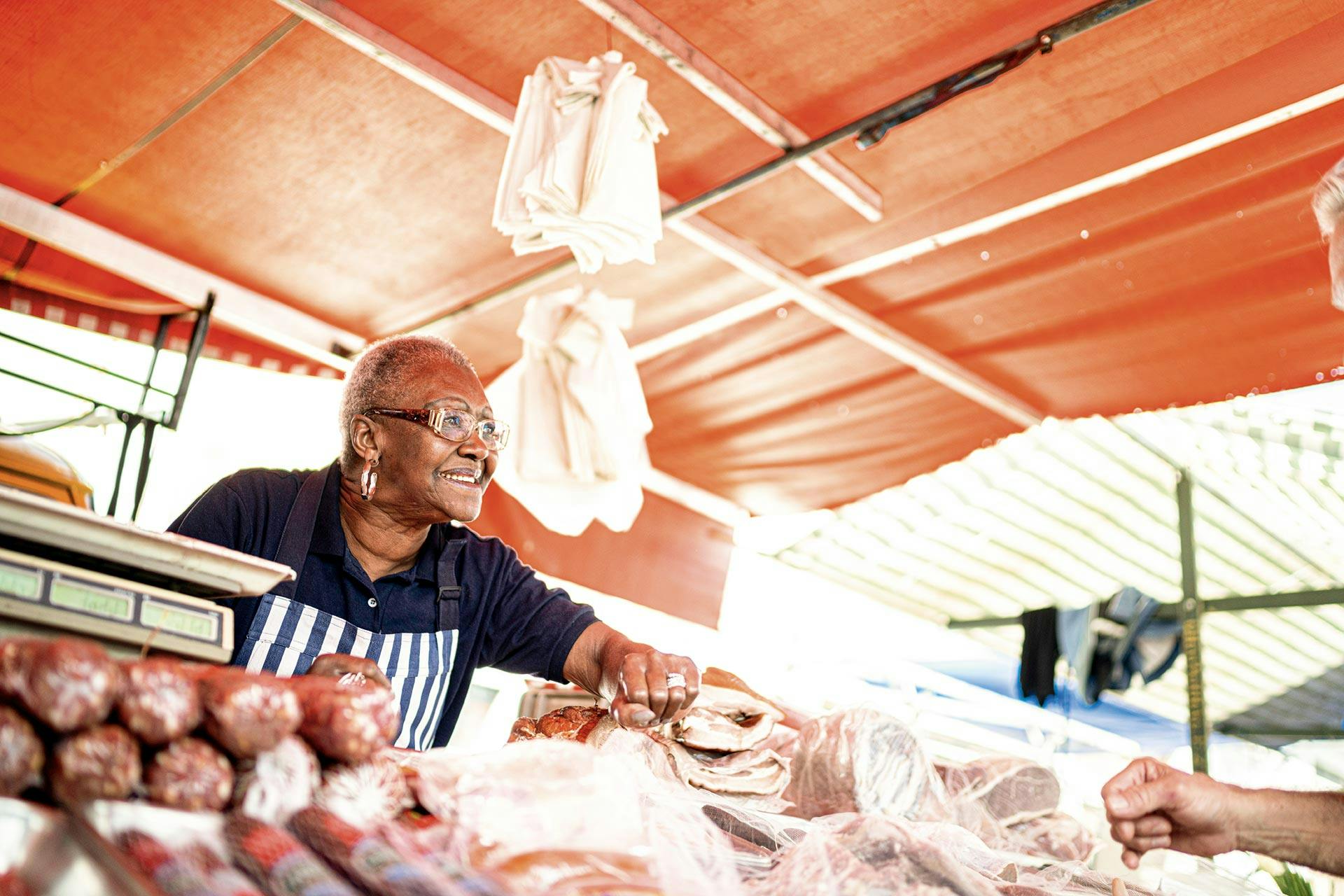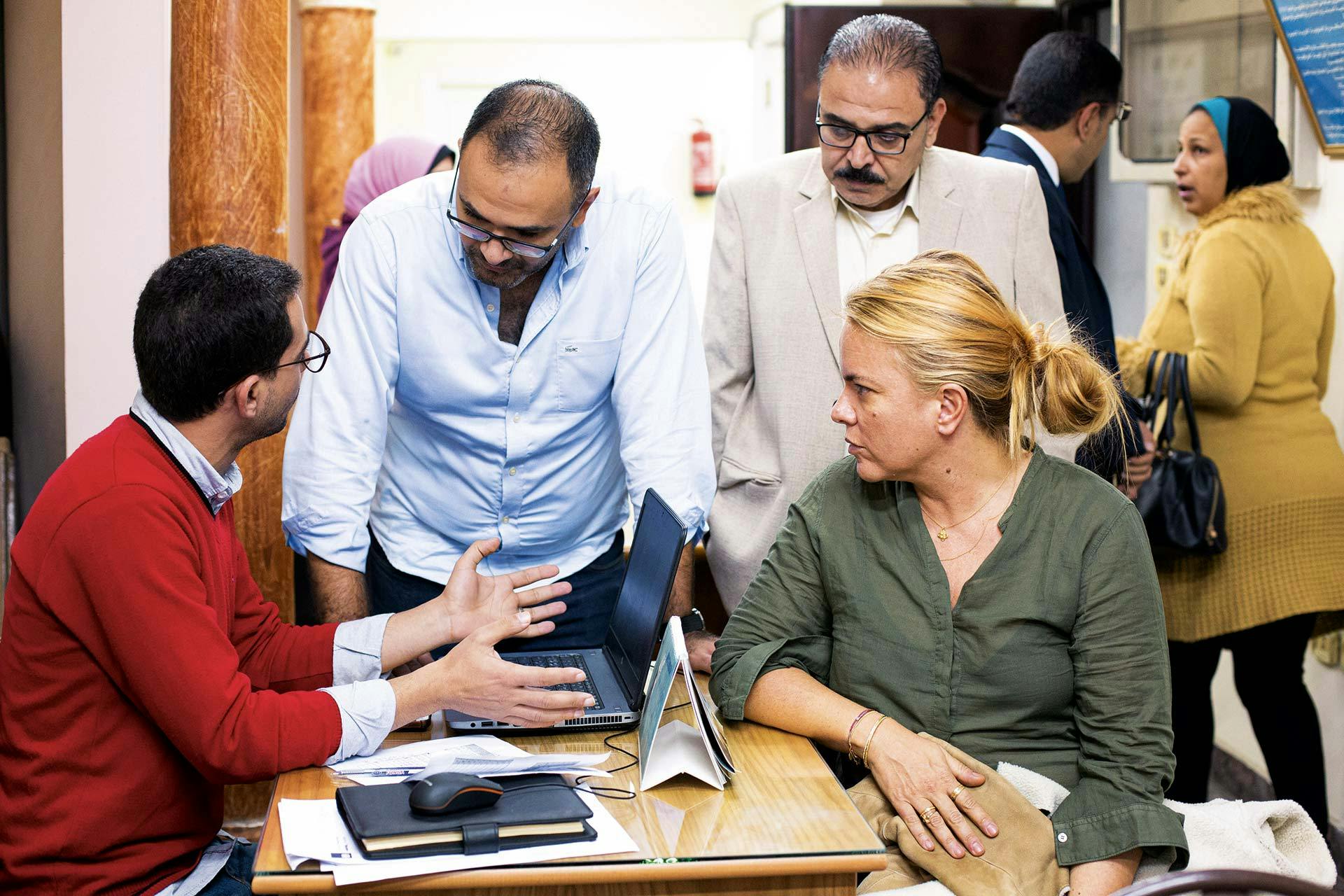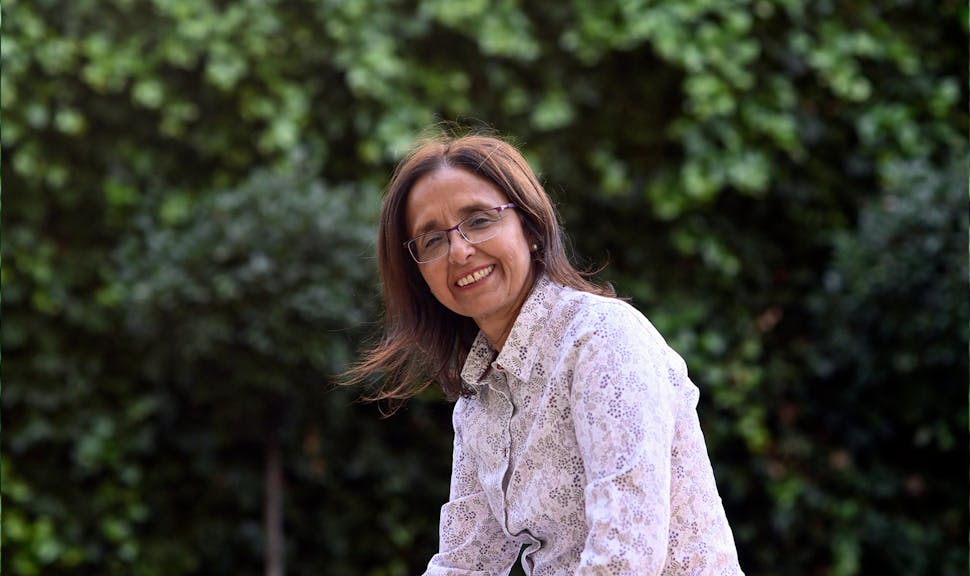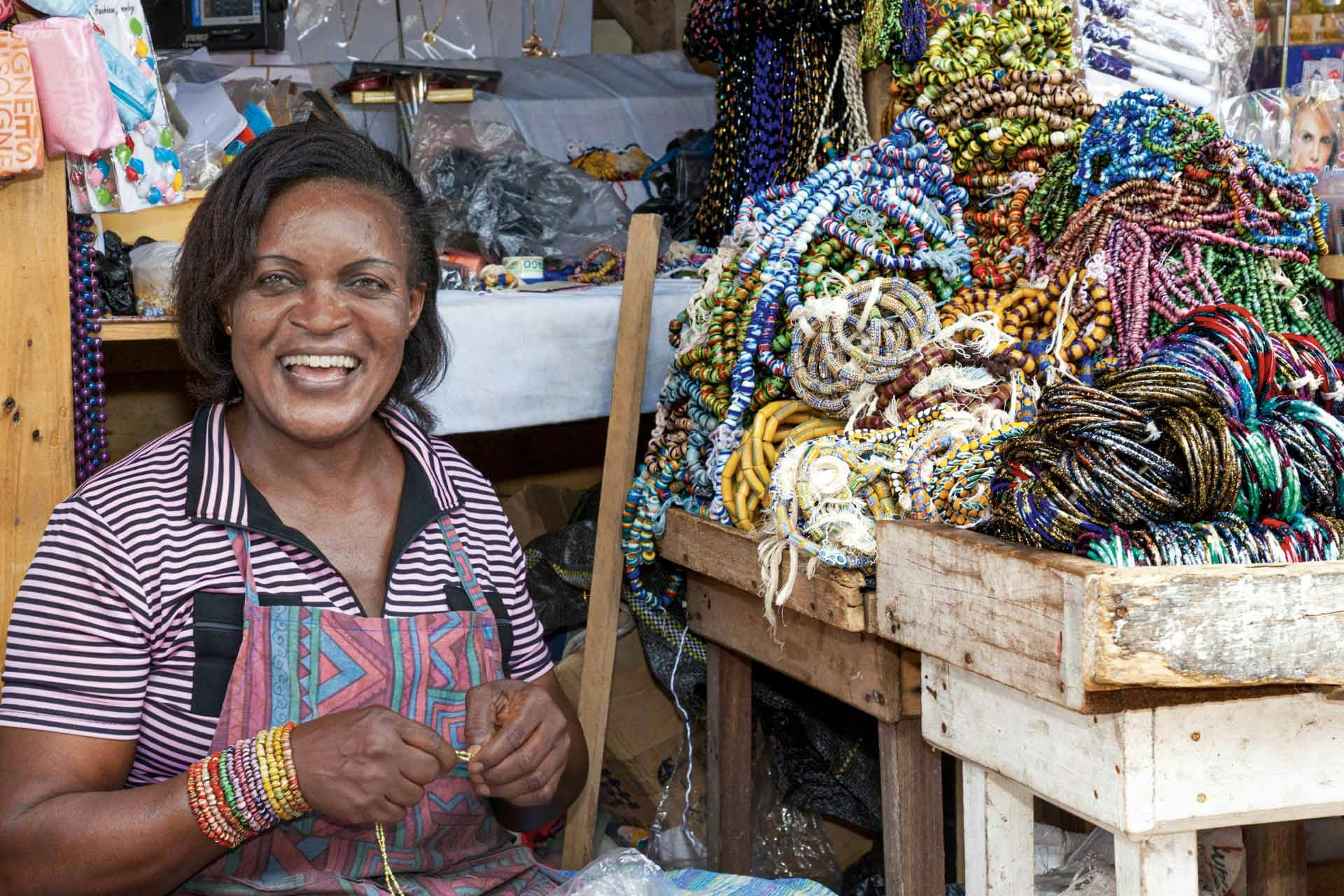
June 30, 2020
Supporting female entrepreneurs
Female entrepreneurs not only offer vast potential for the global economy, but they represent a key market for insurance. With this in mind, AXA has been actively seeking solutions to support women before, during and after the start-up phase. These are based on one conviction: only a truly local approach can identify the specific barriers in each region and help unlock the full potential of enterprising women everywhere.
4 minutes
We’re not interested in women because they’re women but because they’re the ones who make the financial decisions,
explained Liza Garay-de Vaubernier, Global Women’s Market Head at AXA. Whether in the home (where more women than men take out insurance to protect their families and plan for the future) or in the workplace, women are playing a growing role in the economy. The SheForShield survey carried out in 2014 in 10 emerging countries already reported that women represented around a third of all entrepreneurs. Since then, this figure has continually risen worldwide.
Why do women hesitate to launch their own business?
Listening to society
Still underinsured, while fast growing, the female entrepreneur sector represents a key market for insurers. But it is a market that is not easy to penetrate when regulations and needs vary from one region to another. Insuring vulnerable women in emerging countries must mean more than simply offering traditional services at lower prices. We need to change our way of designing and distributing our solutions to ensure we truly meet their needs,
states Garance Wattez-Richard, Head of AXA’s Emerging Customers business.
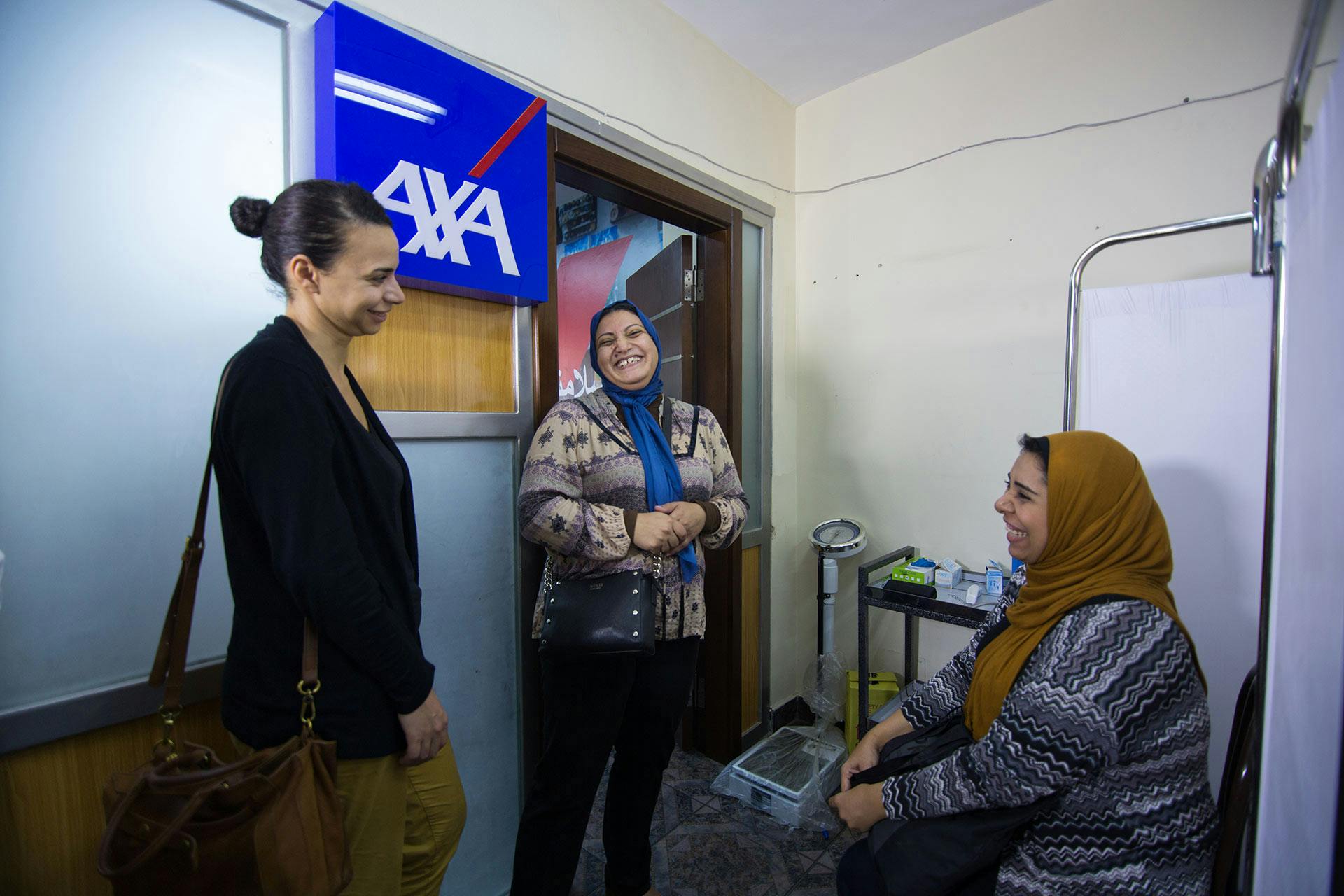
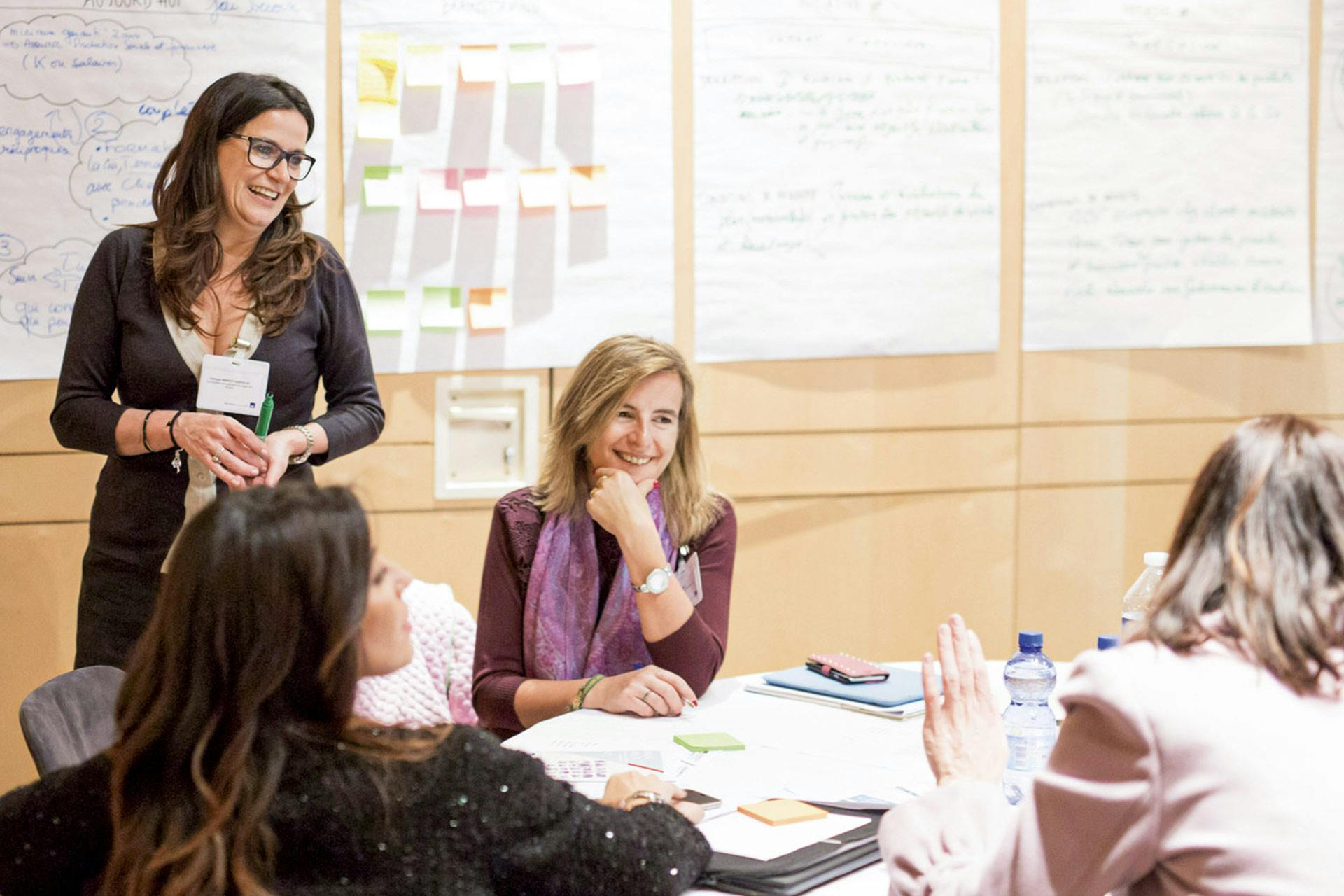
Building partnerships to better understand female entrepreneurs
Understanding female entrepreneurs is the Group’s priority in all of its regions. Nadia Boughaba, Senior Project Manager for AXA Emerging Customers, has just returned from Egypt, where she met about 20 micro-business owners. Most of them are women who’ve created a business (selling accessories, sewing, cooking, etc.) to support their families. They work from home or door-to-door and hardly ever leave their neighborhoods. For them, access to healthcare is essential but insurance is not something they spontaneously consider. Yet they risk losing their savings and having their family fall into poverty if hospitalization suddenly prevents them from working.
To meet these women and facilitate their access to insurance, AXA has set up partnerships, particularly with ABA and Lead in Egypt, which now reach around 700,000 customers, 70% of whom are women. Our insurance mainly covers borrowers in the event of death or hospitalization. This is integrated into loan agreements to ensure that business owners are properly covered, and compensation is paid in cash by our partners since these women almost never have bank accounts. We have also introduced coverage for families, which is a key concern for many,
explains Nadia Boughaba.

Lily Fang
Holder of the Chair in Financial Market Risk, funded by the AXA Research Fund
Action is required to facilitate access to funding and reduce the risks for female entrepreneurs.
In other regions, the problems are different. In mature countries, women are less likely to start a business for financial reasons than to access new ways of working (being their own boss or achieving a better work-life balance). Yet despite higher levels of education, many women are puzzled over choosing the right insurance to protect their business,
says Anne Barret, Head of Marketing, Women’s Program, at AXA France. The French entity has decided to build partnerships to better understand female customers’ needs. With ‘Fondation Entreprendre,’ we’ve carried out a survey to analyze women’s needs and the obstacles facing them. We’ve also launched calls for projects,
adds Anne Barret.
Helping women in business overcome difficulties
The AXA-funded Fondation Entreprendre
program Des Elles pour Entreprendre
has developed a MOOC* to give women fundraising tips. Fondation Entreprendre
and Femmes de Bretagne
have also launched, with the support of AXA France, the Femmes et territoires
entrepreneurial support platform**, which enables women to receive advice or meet up and talk with other female business owners. This helps them build a network and feel less isolated, two of the main challenges identified by female entrepreneurs in mature countries. In addition to insurance, we’ve understood that these women need support to overcome the obstacles preventing them from moving forward,
explains Anne Barret.

Anne Boring
Economist and Research Affiliate, LIEPP
Gender stereotypes and environmental constraints are internalized by women and constitute a prior barrier for them.
Also to help female entrepreneurs overcome difficulties, ABA and AXA have created a health center in the microcredit company’s offices in Egypt. Customers come here every week to reimburse their loans, so we’ve brought in a doctor to see these women who otherwise would never take the time to consult one but wait for a more serious event to seek treatment,
explains Nadia Boughaba.
A network of agents to support female entrepreneurs
In France, AXA has also developed Les Rencontres pour Elles,
meetings hosted by agents and advisors to raise women entrepreneurs’ awareness of the importance of protecting themselves and their companies, explaining the objectives of health, third-party liability and personal accident insurance. We notice that these meetings are mainly held by female agents who are entrepreneurs themselves and understand better than anyone the problems women can face,
says Anne Barret.
The Group is convinced that to better support and reach these women, its distribution networks must be designed with them in mind. With initiatives like Women@distribution and Bouge ta Boîte
in France, AXA is helping female agents develop their businesses and reinforce their networks. In Asia, where 60-70% of our agents are women, we’re launching AXA Prime, a program for operational excellence that will give our agents a real competitive edge,
adds Stephen Appleyard, Chief of Distribution Hub for Asia.
More widely, the Group has made a priority of gender parity, convinced it will boost the company’s performance: by 2023, AXA’s top executives (Global Leadership Network) will include as many women as men.
*Massive Open Online Course, available on the internet
**www.femmesdesterritoires.fr
